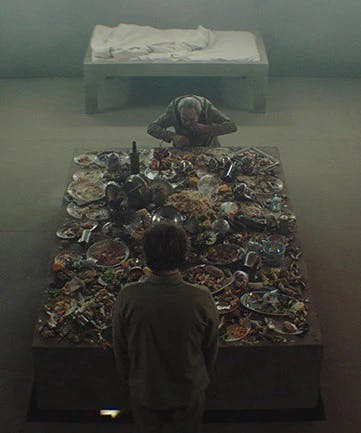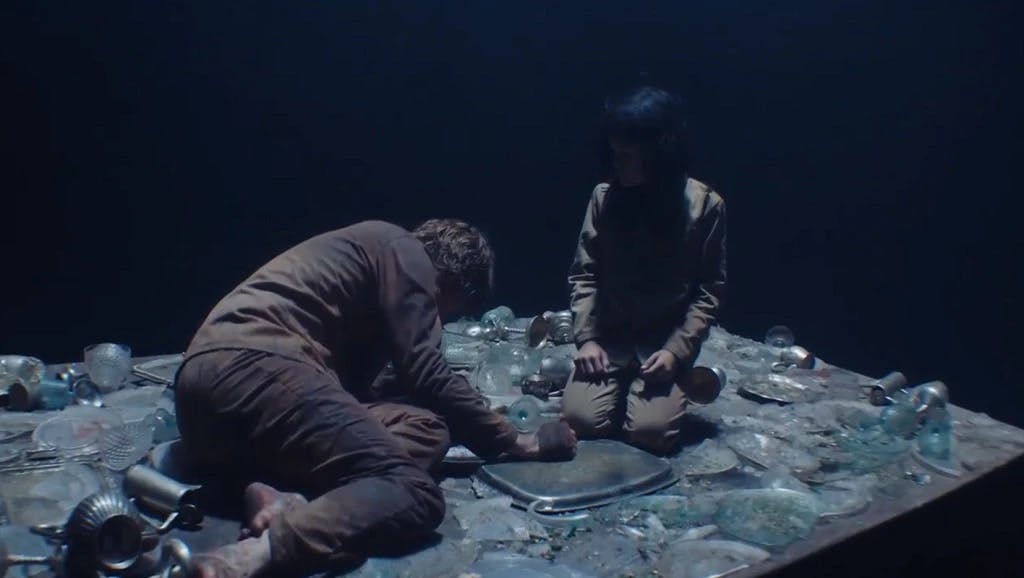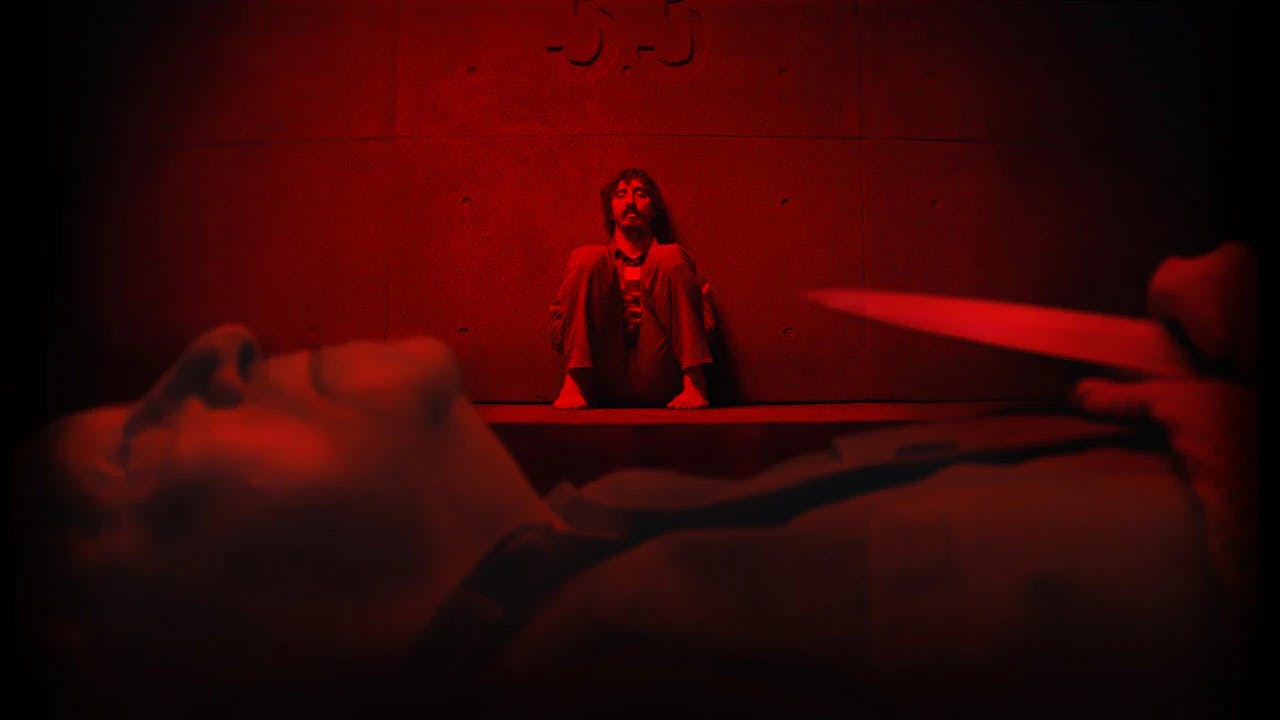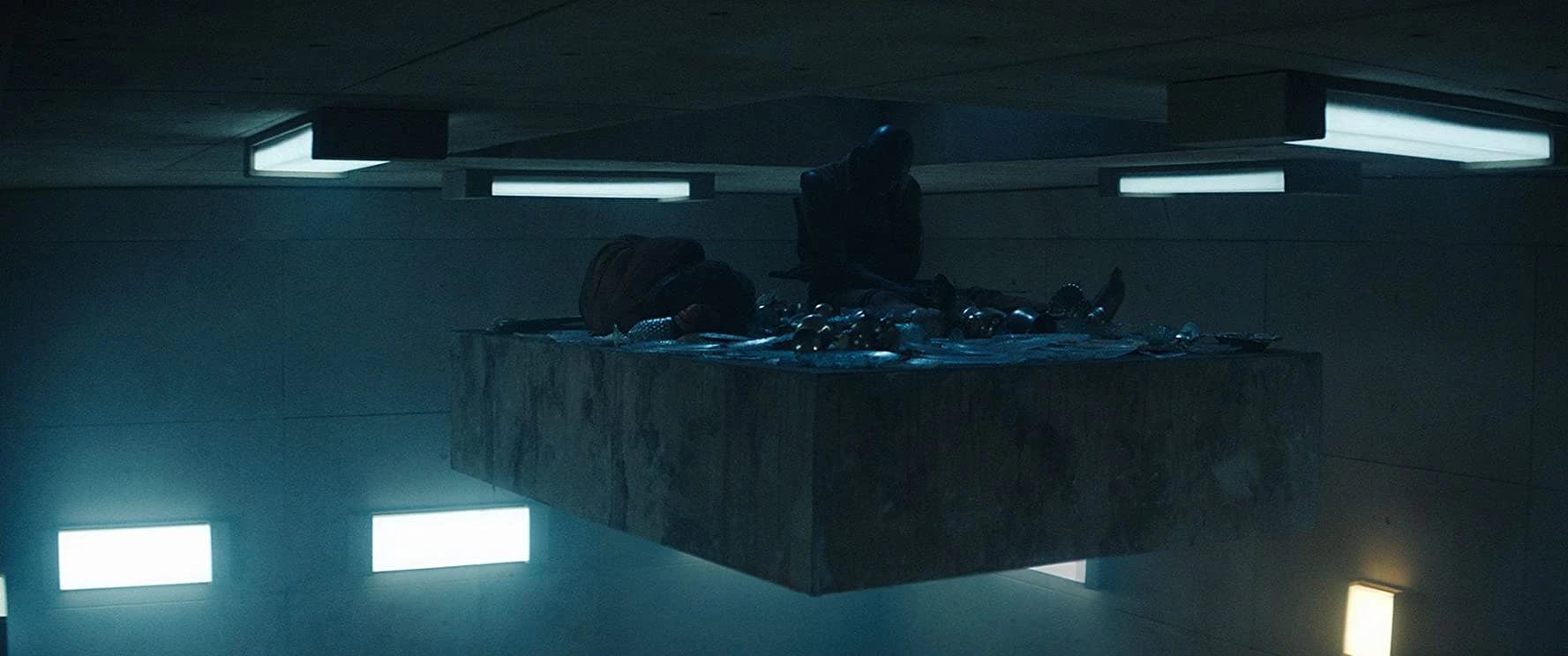Netflix’s 'The Platform' Ends Up Showing The Failures, Not The Virtues, Of Communism
Netflix’s newest smash-hit foreign film, “The Platform”, isn’t going for subtlety in its depiction of the moral differences between Capitalism and Communism. But it doesn't come to its intended conclusions.

Warning: spoilers ahead!
In an impossibly tall, prison-like tower called “the Hole,” every level is occupied by two cellmates. In the middle of every cell is a rectangular hole through which an enormous table packed to the brim with delicious food descends every day, stopping on every floor. And the closer you are to Level 1, the better — the upper levels all get to the food first, leaving those at the bottom of the totem pole without a morsel.
We see the film through the prisoner Goreng’s eyes, who first wakes up on Level 48 — a pretty good level, by the way; there’s normally some scraps left over, even though 94 other people have already scarfed down much of it. “Isn’t it fairer to ration out the food?” Goreng asks his cellmate. After all, there’s technically enough food on the table for everyone on every floor. “Are you a Communist?” his cellmate replies disdainfully.

To Goreng, rationing out food and telling fellow occupants exactly how much they’re allowed to eat based on what they need seems to be the most moral path. The film isn’t timid in its decision to portray Capitalists as uncaring, piggish, every-man-for-himself types, ultimately selfish and evil. Generally speaking, my first reaction might be similar to Goreng’s — it feels unfair for some to feast while others starve to death. So is Communism really more ethical than Capitalism?
Is Communism the Answer?
Communism’s appeal typically stems from the idea that life has just become too unfair — the rich are too rich, and the poor too poor. Our race, gender, and social class seem to either bestow opportunity upon us or leave us disadvantaged, and there’s nothing we can do about it. And The Platform plays into that: each month, the occupants of “the Hole” are moved to a random new level to inhabit — so you might be living the dream on Level 2 one day and facing a month of starvation on Level 137 the next. The prisoners have no control whatsoever over which level they end up on.
Communism’s appeal typically stems from the idea that life has just become too unfair — the rich are too rich, and the poor too poor.
And it’s somewhat true: life can be pretty unfair. That’s where Communism flies in, donning a cape fit for a superhero. “I’ll make things fair,” it assures us. Communism seeks to eliminate privilege, creating a society forced into equality with guaranteed income, housing, job security, free education, and free healthcare.

To achieve his dream of perfectly fair, rationed food, Goreng recruits his cellmate. They hop onto the table, prepare the portions they’ll allow everyone to consume, and ride the table all the way down the tower like an elevator. But because everyone above Level 50 has eaten more recently, the pair decides it’s more ethical to start serving food at Level 51. And so down they go from the top of the tower, fending off the hungry, angry prisoners on the first 50 floors — going so far as to murder them if they don’t listen to Goreng’s orders to stay back and not touch the food. And yet…Goreng is supposed to be our protagonist.
Their Flawed Logic
The film’s rather aggressive, heavy-handed attempt to demonize Capitalism and sanctify Communism rang entirely untrue — ignorant, even. Communism allows governments to infantilize their nation, stripping their citizens of their free will, regulating their entire lives to fit the mold they see fit, treating them as helpless children who need decisions made for them. It seeks to create a monolithic society of beings on their very best behavior.
We all have the choice to make our lives into what we want them to be, despite the different “levels” of wealth, opportunity, or social standing we’re born into.
While these prisoners couldn’t control which level they found themselves on, the same cannot be said of us as a nation. We all have the choice to make our lives into what we want them to be, despite the different “levels” of wealth, opportunity, or social standing we’re born into, and this reflects the best parts of Capitalism. We have agency, control, and authority over our own lives. We’re allowed our free will, something I believe to be far more powerful and influential than a mandatorily harmonious people.

Closing Thoughts
The Platform pushes a harmful narrative while remaining stubbornly ignorant of the implications of such a narrative. Its point of view came off like that of a silly, immature teenager’s, attempting to upset their parents. And in the end, films like this one will do much more harm than good.